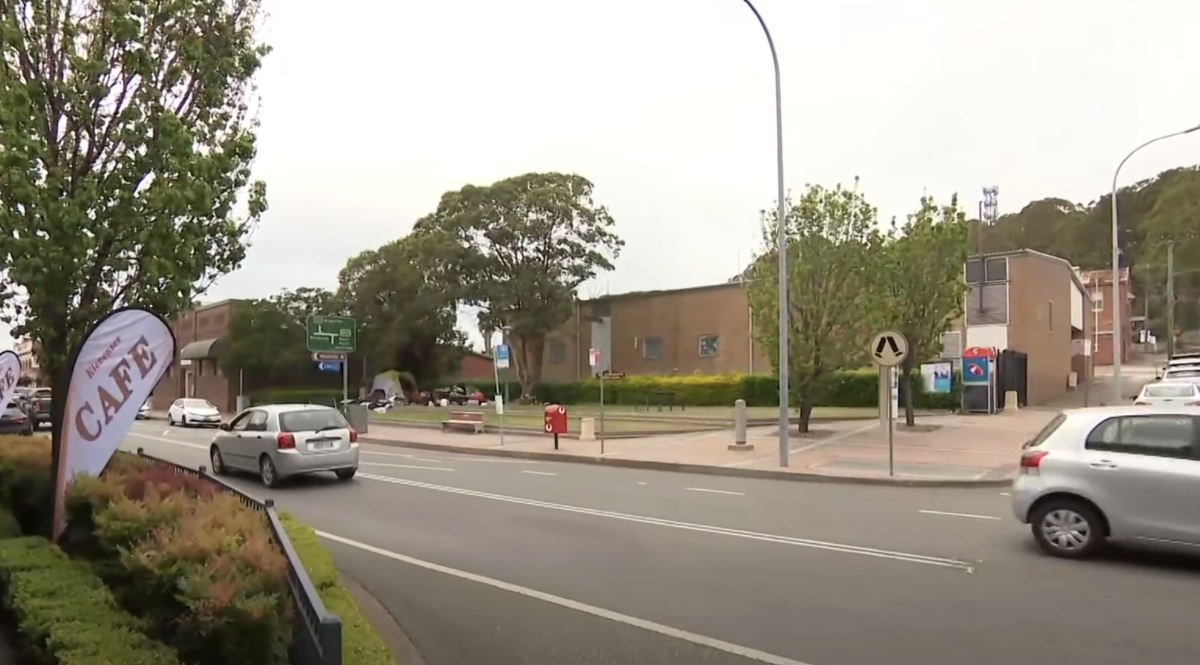
Across regional Australia, more towns are noticing the challenges that come with rising homelessness and social issues. Once thought to affect mainly big cities, these concerns are now prompting new conversations about safety, understanding, and how communities can best respond. In one New South Wales town, a brief video of a man becoming ill in a makeshift camp has reignited local anger and concern.
The footage, filmed in broad daylight in HJ Sternbeck Park on Vincent Street, shows the worsening conditions of what locals have described as a ‘skid-row style’ encampment.
Council orders park to be cleared
‘They’ve kicked in our windows, they’ve yelled, they’ve sworn,’ one nearby shop owner told NBN News. ‘We’ve had families that refuse to come here now. It’s not what this town used to be.’
The site—once a quiet picnic and rest area—has become a source of ongoing tension. Residents say open drug use, public intoxication, and aggressive behaviour have driven families away.
Following weeks of discussions between local authorities, Cessnock City Council has asked all occupants to vacate the area by midday Monday. The decision, officials said, came after ‘ongoing pressure and confusion between the council, police, and Telstra, which owns the land.’
Federal MP for the Hunter Dan Repacholi said: ‘From Tuesday, 28 October, Council will start maintenance works (approved by Telstra), and the entire site will be fenced off indefinitely for safety reasons. If the site is still occupied on Tuesday morning, Hunter Valley Police District will assist Council to remove the remaining campers so repairs can proceed safely.’
Repacholi added that fencing would remain in place for at least three months. He also confirmed that ‘social, health and housing assistance had been offered to the occupants but they refused the offer.’
Source: Facebook / Jerome Price
Mayor Daniel Watton defended the council’s actions, saying it had been urging intervention for some time. ‘It’s completely unreasonable and unfair to shift all the blame onto council or its staff,’ he said.
‘They’ve worked tirelessly, over a long period of time, doing absolutely everything they can within the limits of what council is legally able to do.’
Watton also revealed that police told him they had no authority to issue ‘move-on’ orders without proof of unsafe behaviour, and that Telstra had been slow to respond. ‘Council has repeatedly contacted Telstra, both in writing and by phone, since the beginning of this issue,’ he wrote in a public post.
He added that Telstra had confirmed making complaints to police in August and September but did not receive a reply.
Not all residents are convinced the latest orders will help. ‘Where will they go?’ one woman asked online. ‘I guess that doesn’t matter as long as they are someone else’s problem.’
Another suggested the focus should be on finding ‘a place where they can camp safely, without the constant threat of a move-on order.’
Housing crisis driving the problem
Locals and advocates alike say the issue reflects a broader national crisis. Cessnock now has one of the highest levels of housing stress in regional NSW, with a rental vacancy rate below one per cent and rents up more than 30 per cent in five years. Social housing is heavily oversubscribed.
Earlier this month, local father Joel Carroll drew praise after cleaning out a stormwater drain filled with rubbish and discarded drug paraphernalia. ‘The level of rubbish was simply ignored for too long and I couldn’t turn a blind eye,’ he told Daily Mail.
Carroll said his goal wasn’t to criticise those experiencing homelessness. ‘I don’t want this to promote negativity towards the homeless,’ he explained.
‘But people should remember to donate through the right channels because a lot of the mess looked like it was donated items that were rifled through and then discarded.’
Call for real solutions
Community leaders and service providers agree that long-term solutions require more than fencing off parks. They say lasting change depends on coordinated efforts in affordable housing, mental health, and addiction treatment.
‘Real help would be finding them a place where they can camp safely,’ one resident said. ‘Not just pushing them from one corner of town to another.’
For many Australians—particularly those who’ve seen their towns change over the years—it’s a reminder that issues like homelessness can emerge close to home.
Source: Facebook / NBN Television
Have you noticed similar challenges in your community? How do you think local councils and governments could better support people doing it tough? Share your thoughts below—we’d love to hear from you!







